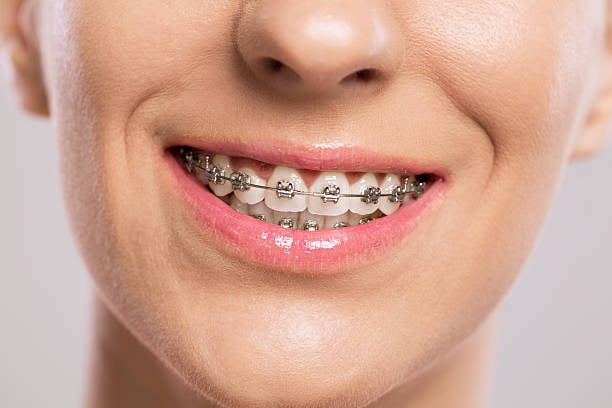When it comes to maintaining a beautiful smile after braces, retainers and your oral health are closely linked. Retainers play a crucial role in stabilizing your teeth, preventing them from shifting back to their original position. However, wearing a retainer comes with responsibility. It’s important to understand how retainers impact your oral health and how to properly care for them to ensure long-lasting results. In this article, we will discuss the connection between Dental Retainers and oral health, and provide tips for keeping your smile in top shape.
The Role of Retainers in Oral Health:
Retainers are designed to keep your teeth in their new position after orthodontic treatment. Without proper retention, your teeth may begin to shift over time, undoing the results of your braces or aligners. Retainers and your oral health go hand in hand because they help preserve not only your smile but also the health of your gums and jaw.
- Prevent Teeth Shifting: Wearing a retainer helps ensure that your teeth stay in their ideal position after treatment.
- Stabilizes Jaw Alignment: A retainer can also assist in maintaining proper jaw alignment, which reduces the risk of discomfort or future dental issues.
- Long-Term Results: Consistently wearing your retainer as recommended can help you enjoy your straight smile for many years.
Impact of Retainers on Gum Health:
Wearing a retainer can have an impact on the health of your gums, both positive and negative, depending on how well you care for your retainer. Proper hygiene is key to preventing potential gum problems.
- Prevents Gum Irritation: If a retainer fits properly, it should not irritate your gums. However, a poorly fitted retainer can cause gum discomfort or even damage.
- Reduce Risk of Gum Disease: By maintaining a clean retainer, you reduce the chances of bacteria buildup that could lead to gum inflammation or infection.
- Promotes Healthy Gums: A properly maintained retainer, when worn as prescribed, keeps your teeth in alignment without compromising the health of your gums.
Cleaning and Maintaining Your Retainer for Optimal Oral Health:
To keep your retainer and teeth in good condition, it’s crucial to clean and maintain both regularly. Neglecting proper care can result in buildup of bacteria, plaque, and even a foul odor.
- Daily Cleaning: Clean your retainer every day with lukewarm water and a soft toothbrush to remove bacteria and food particles. Avoid using hot water, which can warp the plastic.
- Deep Cleaning: Periodically deep clean your retainer with a special retainer cleaner or a mixture of vinegar and water to remove plaque buildup.
- Avoid Harsh Chemicals: Do not use harsh chemicals or toothpaste to clean your retainer, as they can cause damage and affect the fit.
Retainers and Your Oral Hygiene Routine:
Maintaining good oral hygiene is essential when wearing a retainer. Proper care of both your teeth and your retainer can prevent complications and keep your smile healthy.
- Brush Your Teeth Regularly: Make sure to brush your teeth at least twice a day with fluoride toothpaste. This removes plaque and food particles that could get trapped in your retainer.
- Floss Daily: Flossing is just as important when wearing a retainer to remove debris between your teeth that a toothbrush can’t reach.
- Clean Your Retainer: Just like your teeth, your retainer needs regular cleaning. Failing to clean it can lead to the growth of harmful bacteria that can affect both your oral health and your retainer’s effectiveness.
Managing Potential Discomfort with Retainers:
It’s common to experience some discomfort when first wearing a retainer, but most of the time, this is temporary. Understanding how to manage this discomfort can help keep you comfortable while ensuring you maintain your oral health.
- Mild Soreness: In the first few days of wearing a retainer, mild soreness or pressure on your teeth is normal. This should subside as your teeth adjust.
- Use Orthodontic Wax: If your retainer causes irritation to the inside of your mouth, use orthodontic wax to cover the edges and prevent rubbing.
- Consult Your Orthodontist: If discomfort persists or if your retainer doesn’t seem to fit properly, contact your orthodontist for adjustments.
The Long-Term Benefits of Retainers for Oral Health:
The long-term benefits of wearing a Dental Retainers extend beyond just keeping your teeth straight. Proper retainer use contributes to better overall oral health, reducing the risk of future dental problems.
- Avoiding Further Orthodontic Work: Consistent use of a retainer reduces the likelihood of needing additional orthodontic treatment, saving you time and money.
- Prevention of Bite Problems: Wearing a retainer helps maintain proper bite alignment, which can reduce the risk of issues like jaw pain or tooth wear.
- Boosted Confidence: A healthy, well-maintained smile boosts your confidence and overall well-being, making you feel good about your oral health.
Conclusion:
Retainers and your oral health are closely connected, and understanding how to care for both your retainer and your teeth is essential for lasting orthodontic results. By preventing teeth shifting, promoting healthy gums, and ensuring proper hygiene, you can enjoy a straight, beautiful smile for years to come. Remember to clean your retainer regularly, follow your orthodontist’s instructions, and monitor your oral health to ensure the best possible results. With the right care and attention, your retainer will help you maintain your perfect smile for life.

